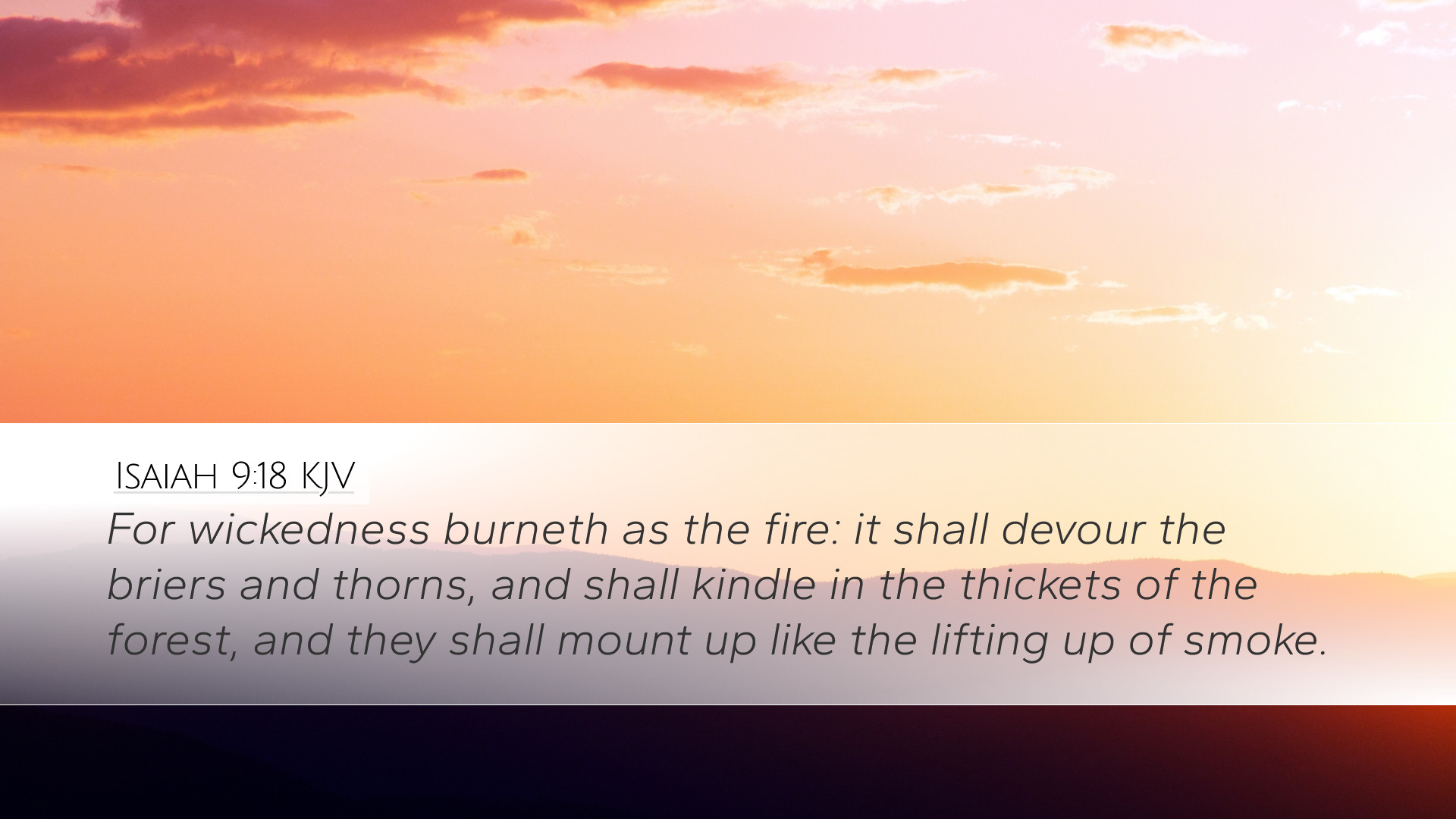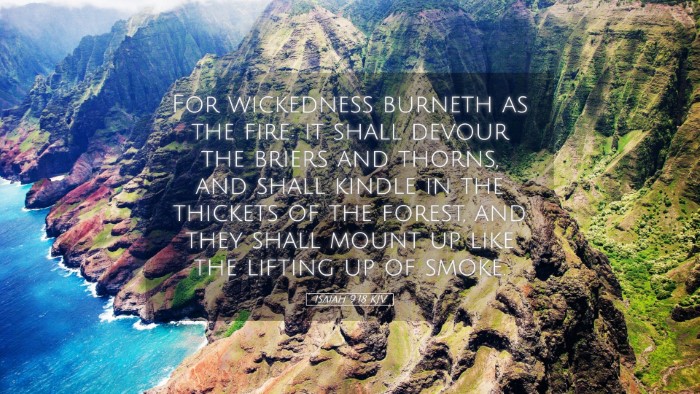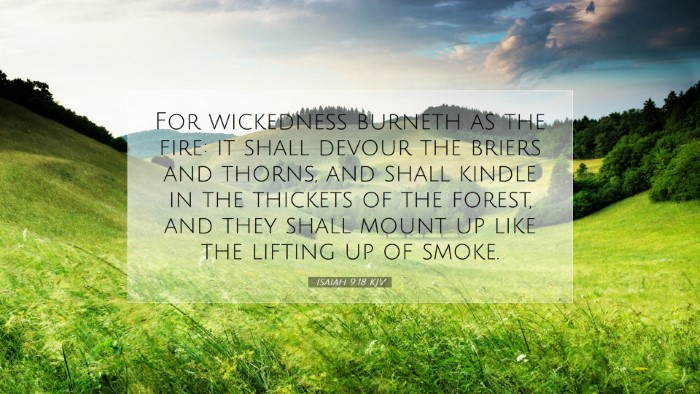Commentary on Isaiah 9:18
Verse: "For wickedness burns as the fire: it shall devour the briers and thorns, and shall kindle in the thickets of the forest, and they shall mount up like the lifting up of smoke."
Introduction
This verse from Isaiah encapsulates the destructive nature of wickedness and symbolizes the consequences of sin and rebellion against God. It serves as a significant warning, rich with imagery and theological implications that resonate through the ages. Various public domain commentaries offer profound insights into its meaning, context, and application.
Contextual Background
Isaiah prophesied during a tumultuous time in Israel's history, marked by political instability and moral decay. The northern kingdom, Israel, faced impending judgment due to its persistent idolatry and social injustices. The imagery of fire represents judgment but also serves as a metaphor for the fervent and consuming nature of sin.
Insights from Matthew Henry
Matthew Henry emphasizes the imagery of burning wickedness, which symbolizes the judgment of God upon sin. He notes that fire signifies destruction, and just as fire destroys briers and thorns, so wickedness brings ruin. Henry highlights that the metaphor of smoke illustrates the visible and palpable consequences of iniquity—something that all can see and smell, representing warning signs for the people to repent.
Insights from Albert Barnes
Albert Barnes connects the metaphor of fire with divine wrath against iniquity, interpreting the escalation of wickedness as a catalyst for destruction. He explains that just as fire consumes the lesser vegetation, sin will ultimately consume those who partake in it, leading to their swift judgment. Barnes urges believers to consider the dangers of continuing in sin and the urgency of turning towards God for redemption.
Insights from Adam Clarke
Adam Clarke offers a deeper exploration of the 'thickets of the forest' mentioned in the verse. He indicates that these thickets are symbolic of strength and resilience; however, even these can be burned by the relentless fire of wickedness. Clarke provides a caution that despite one's apparent strength or societal standing, no one is immune to the destructive consequences of sin. He makes note of how the lifting up of smoke signifies a complete devastation that leaves nothing behind.
Theological Reflections
Isaiah 9:18 serves as a powerful commentary on the nature of sin and its ultimate end. The fire and smoke imagery heightens the sense of urgency for repentance and underscores God’s holiness. The warning against complacency in sin is paramount; believers are called to reflect on their lives, recognizing that persistent wickedness invites judgment and destruction. The phrase ‘the lifting up of smoke’ can also evoke thoughts of the transitory nature of human existence when faced with divine justice.
Application for Today
In a contemporary context, the verse prompts reflection on the condition of our societies and the moral compromises that abound. It encourages pastors and spiritual leaders to preach the transformative power of repentance and the grace of God, which offers salvation from the fiery judgment of sin. Students and scholars are reminded of the importance of engaging with scripture critically, understanding that these ancient texts impart wisdom that remains relevant today.
Key Takeaways
- Wickedness is destructive: All sin leads to judgment and ultimately consumes those engaged in it.
- Consequences are visible: The imagery of smoke reminds us of the pervasive impact of sin in communities.
- God’s holiness demands response: The call for repentance is urgent and necessary to avoid destruction.
- All are vulnerable: No person or society is immune to the consequences of wickedness, regardless of perceived strength.
Conclusion
Isaiah 9:18 serves as a sobering call to holiness for all believers, urging them to examine the destructive nature of sin in their lives and in the world around them. By heeding these warnings rooted in the wisdom from Matthew Henry, Albert Barnes, and Adam Clarke, pastors, students, theologians, and scholars alike are reminded of the relevance of God’s Word and the gravity of choosing righteousness.


